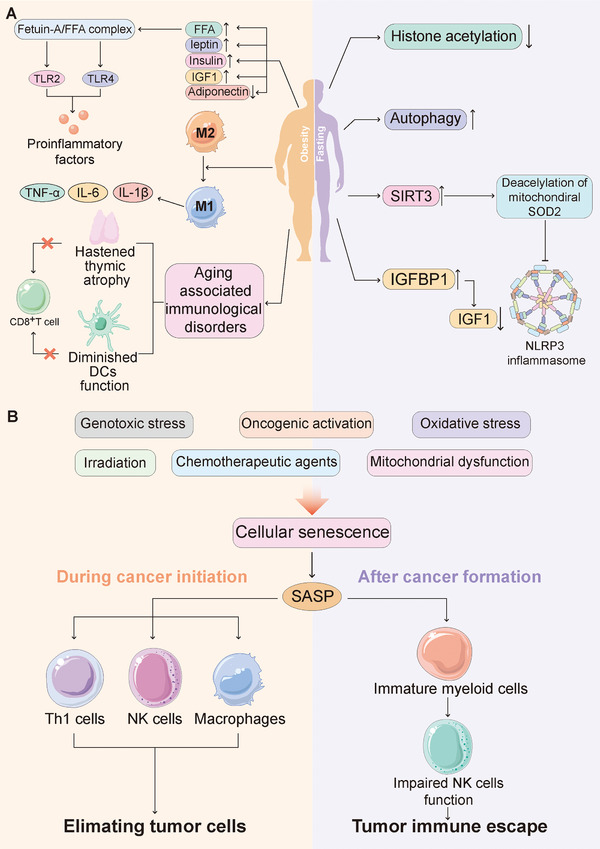FIGURE 5.

Influence of systemic metabolism on regulation of the antitumor immune response. (A) Obesity (left) is correlated with increased glucose, FFAs, leptin, insulin, and IGF1, along with decreased adiponectin, and induces the conversion of adipose‐tissue macrophages from the M2 subtype to the M1 subtype, and is associated with aging‐related immune dysfunctions. Relatively, fasting (right) induces histone acetylation, enhances autophagy, inactivates NLRP3 inflammasome, and decreases the bioavailability of IGF1. B. In response to various stimuli, cells undergo senescence and product SASP, which is involved in eliminating incipient tumor cells during cancer initiation, while leading to immunosuppression after cancer formation. Abbreviations: IGF1: insulin‐like growth factor 1; IGFBP1: insulin‐like growth factor‐binding protein‐1; IL: interleukin; TNF‐α: tumor necrosis factor‐α; SIRT: sirtuin 3; NK cell: NK: natural killer cell.; NLRP3: NLR family pyrin domain containing 3; SASP: senescence‐associated secretory phenotype; SOD2: Superoxide dismutase 2; TLR 2: Toll‐like receptor 2; FFAs: free fatty acids
